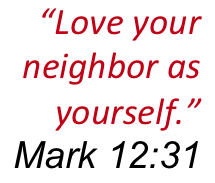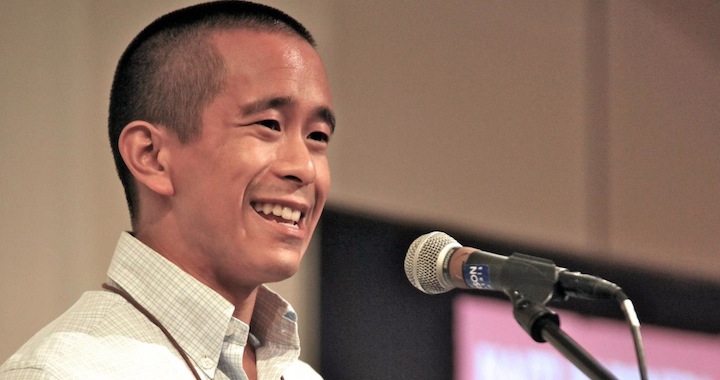For years I’ve been impressed with the ways Haiti Partners has asked hard questions about how we love our neighbors. Today Jonathan Chan, who does some of everything with Haiti Partners, gives a glimpse into the philosophies behind what they’re up to.
Why does it seem like such hard work to love our neighbors well in other countries?
We’re constantly bombarded with the message that “We will be the generation to do _____”, and that a week-long trip or Facebook post is all it takes. And when that collides with the realities of global poverty and injustice, we’re taken totally by surprise by just how intractable these problems really are.
In so many places around the world, we witness the consequences of hundreds of years of injustice after injustice piled on top of one another. Every interaction we have is shaped by those painful contexts. And then we add to that the inherent difficulties of working across lines of class, ethnicity, and culture. The mismatched expectations make challenging situations all the more difficult.
How do you combat that?
We need to keep our optimism and passion grounded firmly in reality. And that’s a difficult balance.
Personally, I can tend to veer too much towards cynicism when I see so many broken systems and people. But as Christians, we have this great hope that through the life, death, and resurrection of Jesus, the world is being restored to something far better than we could ever imagine. And, as Dr. King said, “The arc of the moral universe is long, but it bends towards justice.” And when I remember that I’ve been redeemed by the One who is doing the bending, that changes everything.
Maybe start by telling me what’s NOT a win in working with vulnerable folks?
If you’re just giving away stuff for free rather than helping people develop ways get it for themselves, you’re in dangerous territory. When we give away free food, we’re undercutting local farmers and food markets. The same thing happens with t-shirts or shoes, we end up driving local textile manufacturers out of business and hurt the economy. Going on a medical missions trip to treat people who have no access to health care can save a lot of lives in the short-term, but in the long-term, it’s going to be more effective to help these communities and countries develop their own health care system so that no one needs to wait for the next Western doctor or nurse to show up.
Sometimes it can really be difficult to tell if what you’re doing is the best thing for the long-term. So ultimately, the real win is to stay in a posture of humility and constant learning, always looking for ways to improve what we’re doing.
I know you’ve been doing a lot of work recently to evaluate HP programs. What does a win look like, and how do you recognize it?
In the last ten years, social science researchers like Chris Blattman and organizations like Innovations for Poverty Action have made great strides in developing ways to get a really accurate understanding of impact. So we’re in the early stages of figuring out how to use tools like household surveys, randomized treatment, and statistical analysis to evaluate our work.
Generally speaking, anything that builds up the ability and resources of vulnerable people to find solutions to their problems can be a win.
Sometimes it’s small, straightforward things that make a big difference, like deworming kids so that they spend more time in school and can be fully engaged. Or vaccinating against deadly diseases.
Though they’re complicated and often fail, programs that help people start businesses and find employment are vital. We’re still learning a lot here about what works and what doesn’t, but this can include vocational training or loans and access to credit for entrepreneurs and businesses.
Harder still, but possibly most important, is helping communities and countries develop good, competent governance that allows everyone to flourish. In some places, that looks like alternative dispute resolution or promoting a fair and competent law enforcement and judicial system, like Gary Haugen and Victor Boutros argue in their great new book, The Locust Effect.
It can also look like developing systems to manage natural resources well, or encourage the growth of businesses in ways that don’t exploit the poor. And we’re seeing more and more that working with the Church is vital to shaping people’s perceptions of human dignity and caring for the vulnerable and oppressed.
Tell me about the impact that Haitians have had on you.
 It’s hard to focus on just one, or even a few I think of so many colleagues who are my encouragers and teachers.
It’s hard to focus on just one, or even a few I think of so many colleagues who are my encouragers and teachers.
I think of Enel, who leads our work mobilizing churches and developing Christian leaders. His drive, his passion, and his capacity to learn and pick up new skills and ideas are unbelievable.
Kerline, who helps lead the work at our Children’s Academy and Learning Center. Her calm presence and gentle leadership brings out the best in others.
Alex, who also helps lead the work at the Children’s Academy. He has a passion for joy and laughter that’s so infectious, and also an incredible drive to do great work whether it’s in the classroom or on a construction site. It’s such a powerful combination.
Erwin, one of our Micah Scholars, a young leader studying at a Haitian seminary and working to mobilize churches on behalf of vulnerable and exploited children. When we first met her, she was so timid and shy we could barely hear her. But over the last 3 years, she’s discovered her voice and is making an incredible difference as a leader at her seminary, in her church, and in her community.
And Benaja, who works with our partner schools, training teachers and supporting administrators. He’s joyfully relentless in his work to help improve the quality of education for all Haitian children.

